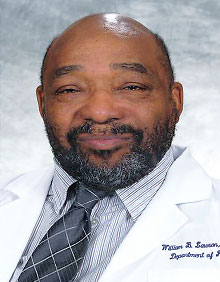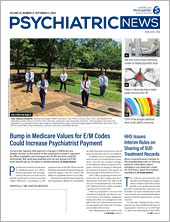The intersection of the criminal justice system and disparities in mental health care provides a stunning example of systemic racism, in which disproportionate numbers of Black people are incarcerated when they should instead receive treatment for mental or behavioral disorders, said mental health experts and advocates in a July webinar. The webinar was hosted by PsychU, a community and online resource library for mental health professionals sponsored by Otsuka Pharmaceutical Development & Commercialization Inc.
William Lawson, M.D., Ph.D., medical director of Emerge Baltimore and adjunct professor at the University of Maryland School of Medicine, described how a racist approach to Black mental health that reaches back over generations has implications for modern criminal justice. He explained that Black people who had conditions such as anxiety or bipolar disorder were either misdiagnosed as having schizophrenia, which led to inferior treatment and poor outcomes, or incarcerated because of the behavioral manifestations of their condition—a practice still evidenced today.
“When you look at the correctional system, which is very heavily African American, many of these folks are mentally ill,” Lawson said. “Those in the correctional system are much less likely to get treated for their disorders or to have access to services once they are discharged from the correctional system.”
Daniel H. Gillison Jr., CEO of the National Alliance on Mental Illness (NAMI), discussed the shortage of Black mental health professionals. “The population of available Black psychiatrists is 3%, and it is 16% for Black psychologists, so there are [few] that look like the patient,” Gillison said.
He added that to change systemic racism—whether it is embedded in the health care system, the criminal justice system, or the educational system that informs both—it is necessary to change how people think.
“The systems run with people. I don’t think you can separate one from the other. People run, people develop, people create, and people manage the systems,” Gillison said.
Paul Gionfriddo, president and CEO of Mental Health America, called for a separation of the public health and public safety systems in terms of who should respond to calls involving mental health emergencies.
“We should never have built a system for treating a chronic health condition on an emergency or long-term basis that involves our public safety officers, our courts, our judicial system, and our jails and prisons,” Gionfriddo said. “More than a century ago, advocates identified [this system] as being inadequate and inept and said it needed to be taken out from under the police … and put into the health care delivery system.”
He described communities that have taken steps to make this change, where paramedics and fire/rescue personnel who usually respond to calls involving a physical health crisis also respond to calls involving a mental health crisis.
“These communities are taking a step forward to deal with the intersection of the problems [centering] around people who are Black, mixed race, or of other colors and have mental health concerns,” Gionfriddo added. ■
“Take a Stand on Racial Injustice: Perspectives From Mental Health Experts in Advocacy and Psychiatric Health Care” is posted
here.

